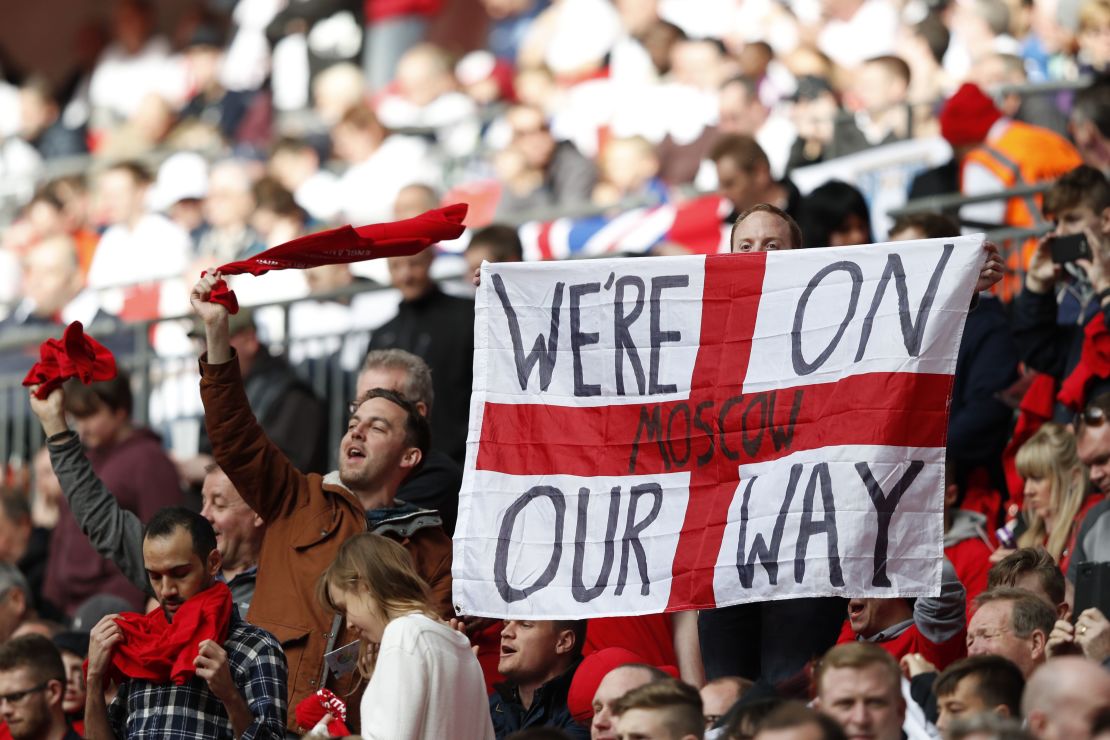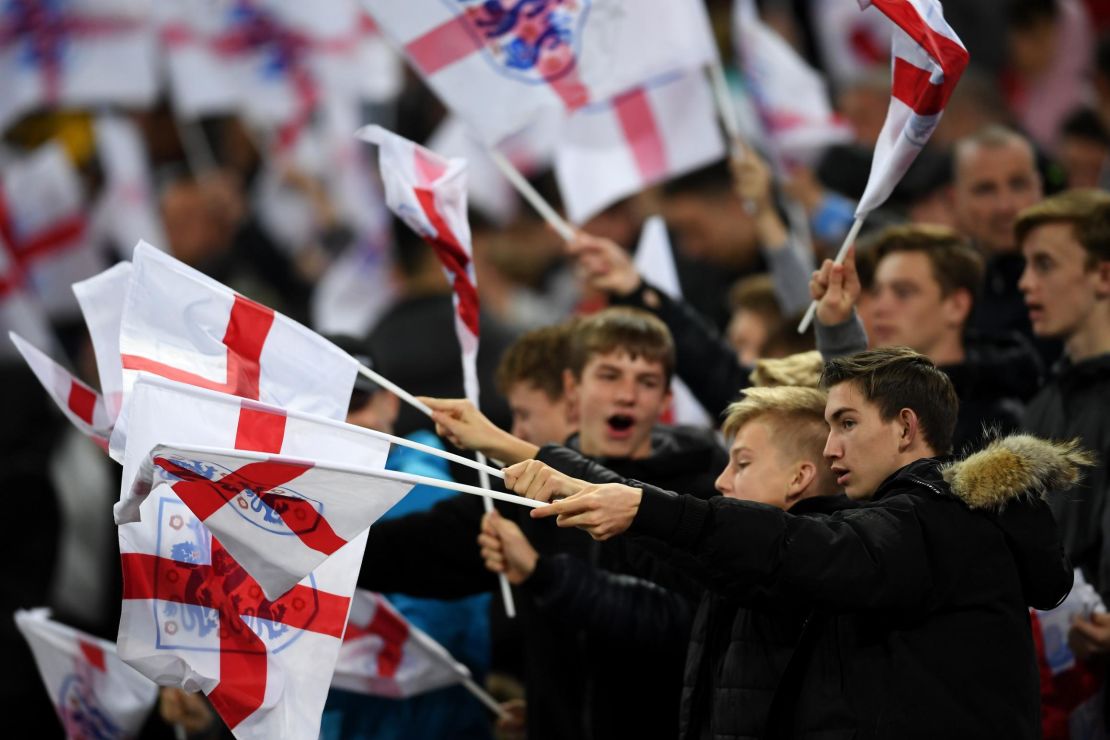Story highlights
Tensions high between Russia & UK since nerve agent attack in southern England
Diplomatic standoff follows nerve agent attack in southern England
England football fans planning on traveling to Russia for the 2018 World Cup will be safe, says Russia’s ambassador to Britain.
Alexander Yakovenko’s reassurances come amid an ongoing diplomatic row between the two nations following the nerve agent attack in the English city of Salisbury.
“All of the necessary measures are being taken,” said Yakovenko, speaking at a press conference at the Russian embassy in London on Thursday.
“The British special authorities are in contact with the Russian special authorities to provide the security of fans and all the British who will be in the territory of Russia.”

Tensions between the two countries were ratcheted up a notch on Wednesday when British Foreign Secretary Boris Johnson compared Russia’s promotion of the World Cup, which will be held from June 14 to July 15, to Adolf Hitler’s use of the 1936 Berlin Olympics.
During a meeting of Britain’s Foreign Affairs Select Committee, Johnson agreed with a lawmaker’s suggestion that Russian President Vladimir Putin intended to use the World Cup as a “PR exercise” to gloss over a “brutal, corrupt regime” in the same way that Hitler used the Olympics as part of the propaganda for his Nazi regime.
“I think the comparison with 1936 is certainly right,” Johnson said. “I think it’s an emetic prospect, frankly, to think of Putin glorying in this sporting event.”
READ: Russia slams UK’s Johnson for comparing Putin with Hitler
READ: Poisoning of Russian spy raises troubling questions
The Kremlin has said those comments were “offensive and unacceptable.”
“This is a completely disgusting statement and it does not fit the foreign minister of the country, of any country,” Kremlin spokesman Dmitry Peskov told reporters.
Tensions high amid nerve agent poisoning
Relations between London and Moscow have deteriorated following the British government’s claims that the Kremlin was behind the poisoning of former Russian double agent Sergei Skripal and his daughter Yulia in Salisbury.
In response to the poisoning of the former spy, the UK government expelled 23 Russian diplomats, the single biggest expulsion of Russian diplomats in more than 30 years. Russia’s Foreign Ministry ordered the expulsion of 23 British diplomats on March 17 from Russia in a tit-for-tat response
Russia denies any involvement in the poisoning of Skripal and his daughter.

British Prime Minister Theresa May has also confirmed that no member of the Royal Family or any government minister would attend the World Cup.
Even before the diplomatic row erupted this month, concerns were raised last summer over the safety of English supporters after Russian hooligans caused trouble during the 2016 European Championship in France, clashing with rival supporters.
Both Russia and England were threatened with expulsion from the tournament following acts of violence between fans.
READ: Arsenal heads to Moscow in Europa League amid tense UK-Russia relations

Travel warning issued by UK Foreign Office
With UK-Russia relations at such a low ebb, Britain’s Foreign Office recently updated its travel advice to British nationals visiting Russian, warning of the “possibility of anti-British sentiment or harassment at this time” due to “heightens political tensions.”
READ: World Cup 2018: Latest news and results
“You’re advised to remain vigilant, avoid any protests or demonstrations and avoid commenting publicly on political developments,”said the Foreign Office’s website.
“While the British Embassy in Moscow is not aware of any increased difficulties for British people traveling in Russia at this time, you should follow the security and political situation closely and keep up to date with this travel advice.”


